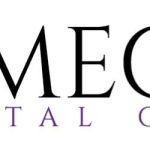Benefits of Dental Implants Over Traditional Bridges
- 1. Enhanced Durability and Longevity
- 2. Better Functionality and Comfort
- 3. Preservation of Jawbone Health
- 4. Improved Aesthetic Results
- 5. Easier Maintenance and Care


Discover what dental crowns are, how they restore teeth, and the benefits they provide. Learn about the process, types of crowns, and how to care for them.

Learn about the important role of dental hygienists in maintaining oral health and how their services help prevent common dental issues such as gum disease and cavities.

Learn everything you need to know about root canal treatment. Understand when you might need one, the procedure, recovery, and my personal experience with root canal treatment.

Learn how to treat receding gums with effective treatment options and prevention tips. Discover the causes of gum recession and how to keep your gums healthy for a better smile.

Discover the benefits of using a Waterpik for dental health. Learn how this water flosser can improve your oral hygiene routine, prevent gum disease, and provide a healthier smile.

Discover how to handle a loose tooth in children with our comprehensive guide. Learn helpful tips for managing the situation and ensuring your child's comfort and oral health during this natural process.
 Axiom Dentistry4.0 (314 review)
Axiom Dentistry4.0 (314 review) Dr. Tom Family & Cosmetic Dentistry4.0 (272 review)
Dr. Tom Family & Cosmetic Dentistry4.0 (272 review) David K Buran, DMD5.0 (107 review)
David K Buran, DMD5.0 (107 review) Valleywise Community Health Center - Avondale4.0 (343 review)
Valleywise Community Health Center - Avondale4.0 (343 review) Higley Park Dental4.0 (563 review)
Higley Park Dental4.0 (563 review) Omega Dental Care4.0 (74 review)
Omega Dental Care4.0 (74 review)  The Importance of Oral Health Education During Pregnancy for a Healthy Pregnancy
The Importance of Oral Health Education During Pregnancy for a Healthy Pregnancy Best Tips for Brushing Your Teeth Properly for Healthy Gums: Essential Techniques for Oral Health
Best Tips for Brushing Your Teeth Properly for Healthy Gums: Essential Techniques for Oral Health Why Skipping Dental Checkups Can Lead to Bigger Oral Health Problems
Why Skipping Dental Checkups Can Lead to Bigger Oral Health Problems Advantages of Porcelain Dental Restorations
Advantages of Porcelain Dental Restorations How Can Diabetes Cause Tooth and Gum Problems? Preventing and Managing Oral Health Issues
How Can Diabetes Cause Tooth and Gum Problems? Preventing and Managing Oral Health Issues Healthy Habits for Promoting Good Oral Health and Hygiene: Tips for a Healthy Smile
Healthy Habits for Promoting Good Oral Health and Hygiene: Tips for a Healthy Smile